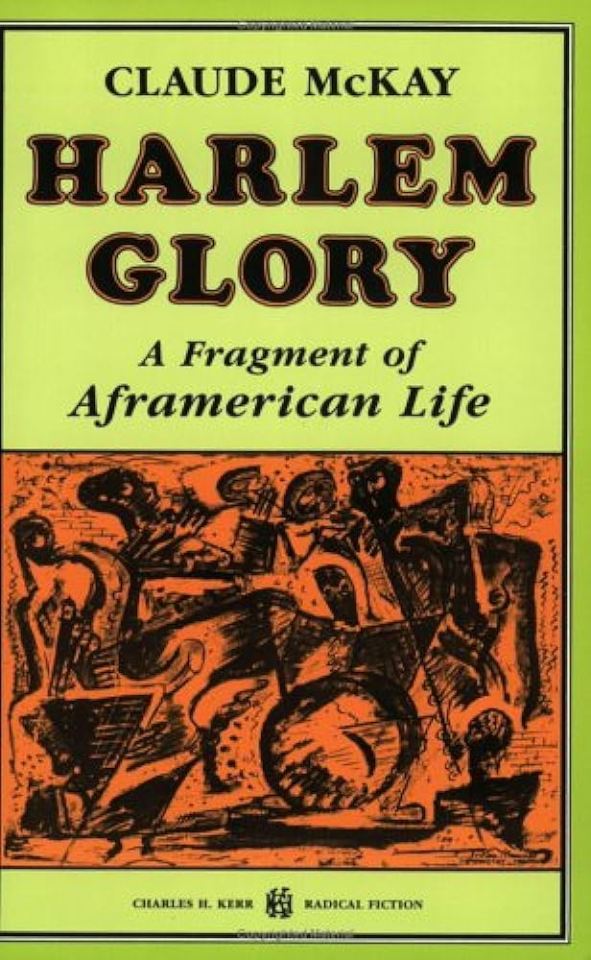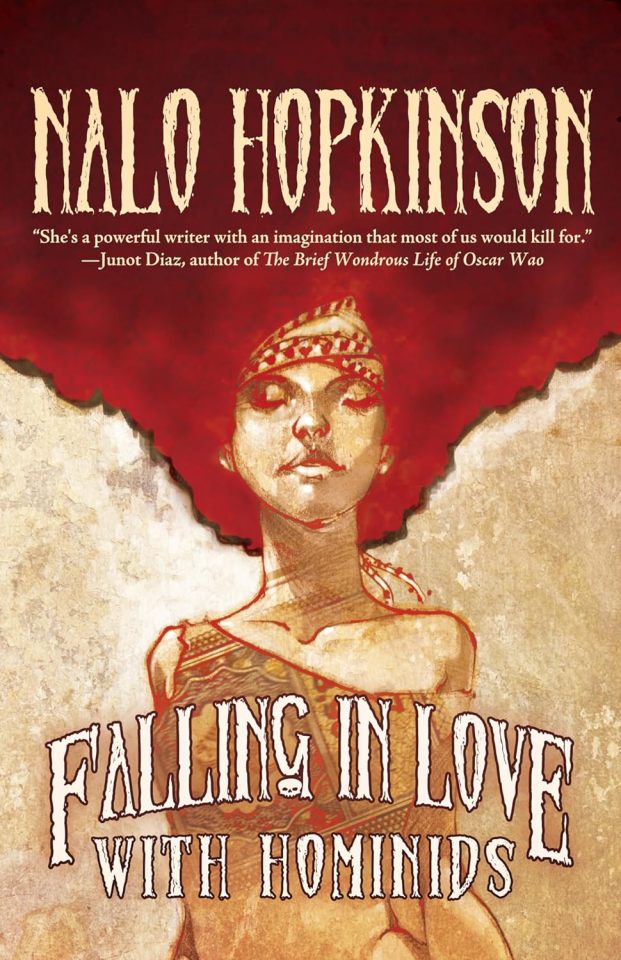#Jamaican literature
Explore tagged Tumblr posts
Text
Say this about a child. In you they will always find a use. Say this as well. They cannot imagine a world where you do not love them, for what else should one do but love them?
Marlon James, Black Leopard, Red Wolf
#Marlon James#Black Leopard Red Wolf#The Dark Star trilogy#children#childhood#love#love quotes#Jamaican literature#fantasy novel#fantasy series#quotes#quotes blog#literary quotes#literature quotes#literature#books#book quotes#words#text#BIPOC literature#BIPOC author
56 notes
·
View notes
Text
Haiku by Geoffrey Philp
Between Babylon and the sea, I’ve built a home with the sea’s whispers.
#alliwanttodoiscollectpoetry#poem#poetry#poet#poets#tumblr poetry#anthology#poem of the day#poems#poetry blog#Geoffrey Philp#haiku#jamaican#jamaican poetry#jamaican literature#literature#sea#babylon#home
3 notes
·
View notes
Text
"Time is a cobra. Coiling and coiling,"
Marlon James, from 'Moon Witch, Spider King', first published in 2022.
1 note
·
View note
Text

#novella#novellas#harlem glory#harlem glory a fragment of aframerican life#claude mckay#black literature#jamaican american literature#jamaican literature#african american literature#american literature#20th century literature#english language literature#have you read this short fiction?#book polls#completed polls
4 notes
·
View notes
Text
instagram
0 notes
Text
youtube
Expanded Review: "Skin Folk" by Nalo Hopkinson -
Not merely a collection of horror tales, Hopkinson expands the horror genre, never forgetting that stories are about character, only underscored by the supernatural. Offering breadth and depth, the only thing wanting in these tales is room to stretch for more still.
#bookworm#literature#book reviews#read read read#books#horror#nalo hopkinson#skin folk#riding the red#folk horror#caribbean literature#jamaican literature#Youtube
0 notes
Text
The idea that the Irish were enslaved before Black people—or that they were enslaved in the same way—is a myth that has been widely debunked by historians. While the Irish did experience severe oppression, indentured servitude, and forced labor, it is important to distinguish these experiences from the transatlantic chattel slavery that African people endured.
The Truth About Irish Indentured Servitude
During the 17th century, many Irish people were forcibly deported to British colonies like the Caribbean and North America. This happened primarily under English rule, especially after the Cromwellian conquest of Ireland (1649–1653). Thousands of Irish men, women, and children were sent to places like Barbados and Virginia as indentured servants—a system that involved working under contract for a set number of years in exchange for passage, food, and (eventually) freedom.
However, unlike African slaves:
• Irish indentured servants had legal rights and were promised freedom after completing their term (typically 4–7 years).
• Their servitude was temporary, while African slavery was lifelong and hereditary.
• They were still considered human under the law, whereas African slaves were legally treated as property.
Were the Irish “Slaves” in the Caribbean?
Some Irish indentured servants were treated brutally—enduring harsh conditions, beatings, and even death from overwork. This has led some to claim they were “white slaves,” but this misrepresents the reality. The term “slave” implies permanent, hereditary bondage with no path to freedom, which was the case for Africans but not the Irish.
In places like Barbados, Irish laborers worked on plantations alongside enslaved Africans, but there were key legal and social differences:
• African slaves were enslaved for life and their children were born into slavery.
• Irish indentured servants had an end date to their labor, after which they could gain land and status.
• Over time, Irish indentured servitude faded, while African slavery became more entrenched and brutal.
Where Did the Myth Come From?
The “Irish slaves” myth has been spread largely through misinformation and has been used in modern times to:
• Downplay the horrors of African slavery.
• Suggest that white people suffered just as much under slavery.
• Create a false equivalence between indentured servitude and racial slavery.
This narrative often appears in misleading social media posts and is sometimes used by white nationalist groups to dismiss discussions about racism and systemic oppression.
Acknowledging Irish Struggles Without Rewriting History
The Irish did suffer under British colonialism—facing land dispossession, famine, and forced migration. Their experience was brutal, but it was not the same as African slavery. Recognizing this difference doesn’t diminish Irish suffering but instead allows us to accurately understand history.
Instead of comparing oppressions, it’s more productive to acknowledge the unique struggles faced by both Irish and African peoples—and how colonialism shaped their histories in different but deeply impactful ways.
#irish language#irish#irish mythology#irish music#notre dame fighting irish#irish history#irish girl#irish politics#irish art#irish literature#ambitious women#beautiful women#beauty#glow society#the glow society#fit beauty#health#self love#self improvement#self care#jamaican#blck girl magic#black forest#black men#black canary#black history#black woman#black people#black history month#black man
20 notes
·
View notes
Text
youtube
Caribbean Writers & Their Art: History, the Caribbean and the Imagination (1991)
Kamau Brathwaite in conversation with Edward Baugh as a part of the Caribbean Writers Summer Institute at the University of Miami.
Speaking on comparative literature in the Caribbean, Brathwaite says, "It is necessary that we do this because the Caribbean although artificially divided into English-speaking, French-speaking, Dutch-speaking, Spanish-speaking, is really part of a whole underground continent of thought and feeling and history."
Commenting on the fragmentation of the region he remarks, "In the days of the Caribs, you could take a canoe and travel easily from St. Lucia to Martinique. Now with the arrival of Europe, despite Europe's technology, it is almost impossible to move from St. Lucia to Martinique, and let me explain that they are within hailing distance from each other."
#kamau brathwaite#barbados#university of west indies#jamaica#edward baugh#literature#caribbean literature#university of miami#clacs#decolonization#colonialism#colonization#west indies#bajan#jamaican#west indian#caribbean islands#antilles#martinique#st lucia#saint lucia#indígena#arawak#taino#indigenous
15 notes
·
View notes
Text
unfortunately i have the kind of autism that makes people have to explain things to me/i have to bounce my ideas around with people who know things before thoughts become anything for me
#when i did cape literature it was the first time i had actually read shakespeare in its like. original english dialect#and i would read the play on my own at home‚ not understand anything much less connect themes or anything#then go to school and sit in class while we read it and it would feel like i was reading it for the first time#much of my existing is masking like. pretending i know things i think i'm fr stupid at heart#<- i got away with a lot of this at school like i never spoke in patois i never wore braids my parents were still super helicopter-y#so i was generally unaware of like. school gossip or jamaican pop culture because at first i didn't have a phone and then later on#i straight up stopped caring about pretending to care about that stuff#i was pretty quiet but at the same time i had a lot of friends but didn't have a friend group etc etc#i Appeared like the perfect student so i got away w cheating on tests or not knowing stuff etc etc#especially towards the end of highschool when my depression got really bad and my overall average was in the 60s#very often i would submit assignments and tests thinking i got my point across perfectly or answered questions right according#to what i studied then id get the grades and commentary back and i fucking failed or something#so now whenever my profs or people in fandom r like you're so smart or you articulate your works very well i'm like What the fuck thank you#and it imprints in my brain forever because this is new to me#jamaican academia and jamaica in general is like so much about following roles than it is being a person#and when you're neglected and outcast and autistic it becomes impossible to be jamaican at all#and now people both here (jamaica) and in ghe us ask me shit like “wait you were born and puved in jamaica your whole life??”#it's. anyway#this post was originally about how i'm actually kind of stupid#*
8 notes
·
View notes
Text

It ain’t special, but it’s something. White rice, dumplings, saltfish, okra, tomatoes, and onion.
#food#Jamaica#personal#book#books#foods#jamaican#jamaican food#dinner#Jamaican dinner#okra#salt fish#rice#vegetables#chinese literature#Chinese#Chinese author#peach blossom pavilion#peach blossom pavilion book#mingmei yip#mingmei yip author
3 notes
·
View notes
Text
"Nobody ever gets betrayed by their enemy."
Marlon James, Black Leopard, Red Wolf
#Marlon James#Black Leopard Red Wolf#Dark Star Trilogy#betrayal#betrayed#enemy#Jamaican literature#fantasy novel#quotes#quotes blog#literary quotes#literature quotes#literature#book quotes#books#words#text
37 notes
·
View notes
Text
Words of the Day
"Me likkle but me talawa" -- just want to put this here, 'cause I heard someone say it this week.
untoward:
Improper; unseemly.
Unfavorable or adverse.
Froward; perverse.
carceral:
Belonging to a prison.
Of or pertaining to prison.
A pergola is most commonly an outdoor garden feature forming a shaded walkway, passageway, or sitting area of vertical posts or pillars that usually support cross-beams and a sturdy open lattice, often upon which woody vines are trained.
~~~
Though similar, a pergola is different from a gazebo.
#me likkle but mi talawa#Words of the Day#words#dictionary#literature#patois#jamaican#jamaican patois#language#definition#untoward#carceral#pergola#american fiction#Me likkle but me talawa
2 notes
·
View notes
Text
https://drive.google.com/file/d/1-IF5-bqf-S2aCJ7wkHDolWAOFYMx3hgx Fire Rush by Jacqueline Crooks has now been added to the Black and British drive!!

#black british drive#black british#black literature#black feminism#black british literature#black diaspora#black british jamaican
0 notes
Text

#novella#novellas#falling in love with hominids#nalo hopkinson#black literature#jamaican canadian literature#canadian literature#21st century literature#english language literature#have you read this short fiction?#book polls#completed polls
6 notes
·
View notes
Text

Like most writers and artists, award-winning gay icon, JOHN R GORDON, is camera-shy. This image of GORDON was styled and photographed by his friend and collaborator, the reclusive queer British-Somali maverick, DIRIYE OSMAN.
DIRIYE lensed this portrait in his own joy-filled home, The Blue Temple.
JOHN R GORDON'S Faggamuffin, a prescient novel about gay Jamaican immigrants in London, which predates the Windrush scandal, is available to purchase via this link.
#gay literature#gay icons#john r gordon#Faggamuffin#gay jamaican#queer fiction#lgbt art#queer artist
1 note
·
View note
Text
3 Word Review: “Skin Folk” by Nalo Hopkinson -
3 Word Review: “Skin Folk” by Nalo Hopkinson -
A startling, wide-ranging hybrid of folk horror and contemporary challenges.
#bookworm#literature#book reviews#read read read#books#3 words#horror#nalo hopkinson#caribbean literature#jamaican literature#skin folk#short story#short stories
0 notes